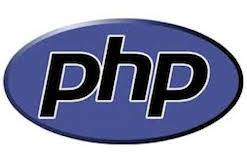How To Install PHP 8 on AlmaLinux 9

In this tutorial, we will show you how to install PHP 8 on AlmaLinux 9. For those of you who didn’t know, PHP is an open-source server-side scripting language that many devs use for web development. The new PHP 8.3 brings enums, fibers, never return type, final class constants, intersection types, and read-only properties among new features and changes.
This article assumes you have at least basic knowledge of Linux, know how to use the shell, and most importantly, you host your site on your own VPS. The installation is quite simple and assumes you are running in the root account, if not you may need to add ‘sudo‘ to the commands to get root privileges. I will show you the step-by-step installation of PHP 8.3 on AlmaLinux 9. You can follow the same instructions for CentOS and Rocky Linux.
Prerequisites
- A server running one of the following operating systems: AlmaLinux 9.
- It’s recommended that you use a fresh OS install to prevent any potential issues.
- SSH access to the server (or just open Terminal if you’re on a desktop).
- A network connection or internet access to download PHP repository.
- A
non-root sudo useror access to theroot user. We recommend acting as anon-root sudo user, however, as you can harm your system if you’re not careful when acting as the root.
Install PHP 8 on AlmaLinux 9
Step 1. First, let’s start by ensuring your system is up-to-date.
sudo dnf clean all sudo dnf update sudo dnf groupinstall "Development Tools"
Step 2. Install EPEL and REMI Repository.
You need to install the Epel and Remi repository on AlmaLinux 9 with the command below:
sudo dnf install https://dl.fedoraproject.org/pub/epel/epel-release-latest-8.noarch.rpm sudo dnf install https://rpms.remirepo.net/enterprise/remi-release-9.2.rpm
So after adding the Remi repository, we will list the available PHP options below:
sudo dnf module list php
We will first need to reset this before we enable the latest version of PHP 8.3 provided by the Remi repository:
sudo dnf module reset php sudo dnf module enable php:remi-8.3
Step 3. Installing PHP 8.3 on AlmaLinux 9.
Now install the default enabled version PHP 8.3 using the command below:
sudo dnf install php
If you would like to install the most commonly used extensions for PHP 8.3, use the following command:
sudo dnf install php-devel php-cli php-fpm php-curl php-mysqlnd php-gd php-opcache php-zip php-intl php-common php-bcmath php-imap php-imagick php-xmlrpc php-json php-readline php-memcached php-redis php-mbstring php-apcu php-xml php-dom php-redis php-memcached php-memcache
On a successful installation, you can check all the available PHP extensions:
php --modules
Check and verify the installed version:
php -v
Output:
[root@idroot.us ~]# php -v
PHP 8.3.0 (cli) (built: Jan 10 2024 16:46:54) ( NTS gcc x86_64 )
Copyright (c) The PHP Group
Zend Engine v4.0.4, Copyright (c) Zend Technologies
with Zend OPcache v8.0.4, Copyright (c), by Zend Technologies
Congratulations! You have successfully installed PHP. Thanks for using this tutorial for installing PHP 8.3 on your AlmaLinux 9 system. For additional help or useful information, we recommend you check the official PHP website.